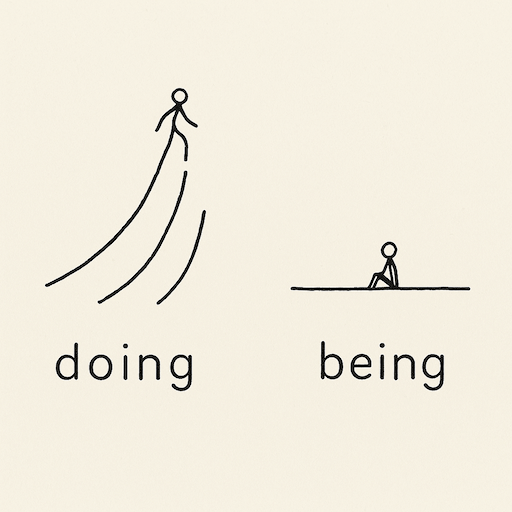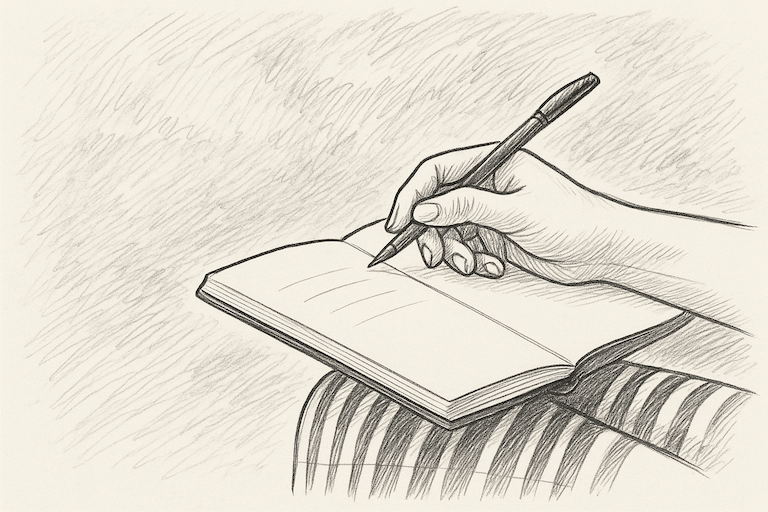Society values the push — the doing, the achieving, the forward motion.
But this week, we’re turning our attention toward being.
Thresholds and the Parts That Resist
As we bring awareness to thresholds, it’s normal to feel some fear or anxiety.
Like Leeane shared about Monja — at the end of the sweat lodge she said she could do more than she thought. She surprised herself: “Look at that — I got through.”
It leaves you with that quiet sense of wonder: I wonder what else I can do?
If you think back to the thresholds you’ve already crossed, they often carry that same feeling of strength — each time something in us breaks open: an old idea, a fear, a long-held family belief.
This week, notice your relationship to thresholds — the ones you’ve crossed and the ones still waiting.
They show up in our everyday lives as much as in the big cycles.
As we move through these inevitable challenges, we also meet the parts of us that say, “Hell no, I don’t want to go.”
Get curious about the small (and maybe big) things you hold back from.
A small example: I know I need to get myself exercising, but something in me doesn’t want to.
If you gave that voice space, what would it say?
Maybe: “Rest is important right now.”
That might be valid.
Or maybe: “I can’t let myself be seen like this — unfit, not worthy.”
We can listen with curiosity to these stories. They often lead back to earlier experiences when not going felt like the only way to stay safe.
A Story from My Own Pages
I remember one of my earliest experiences of not going was to karate camp.
I was seven, and there was an older kid who bullied me. I went, but I bunked most of the weekend, and shortly after, I quit karate altogether.
It became a threshold I didn’t cross again — the one that taught me to avoid physical difficulty.
Over the years, I’ve learned to help that young part of me — to put down the burden of feeling like it was his fault for not getting through.
He really did the best he could with what he had.
And I helped him find new thresholds to cross — but this time, we looked for mentors, people who had gone before and could show us how.
What a difference that made to a boy who had few men taking an interest in him.
He loved that idea. Deep down, he knew he couldn’t do it alone.
This Week’s Invitation
As we explore thresholds, check in with your parts:
What do they need to cross?
What gives them strength?
What will help them?
These are very different questions from what society teaches: Push harder. Be stronger.
This week we’re inviting more being — the yin quality.
Slowing down, even for a few minutes, and listening.
It may look like:
- Reaching for your phone less
- Giving yourself a few moments each day that are non-directional
- Letting yourself walk with less of a need to get somewhere
- Letting play arise — not to get anywhere, just to be.
If you find this hard, no problem.
Just notice it — and put it in your pages.


